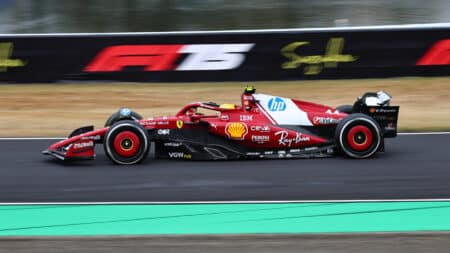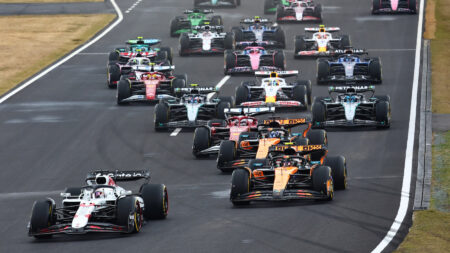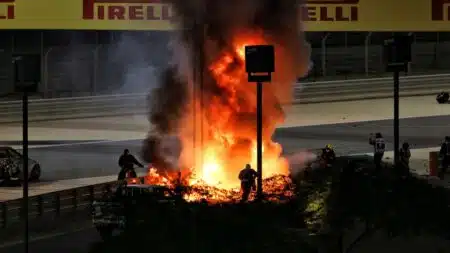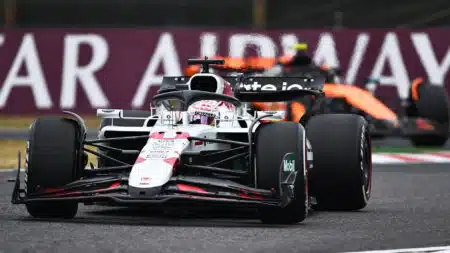
The Ferrari updates Hamilton hopes will fix his car problems in Bahrain
Ferrari is the Formula 1 team bringing the biggest update for its car in the Bahrain Grand Prix
I was a little reticent as I drove through Vermont’s Green Mountains last Thursday headed toward Montreal for the Canadian Grand Prix. The race is one of my favourite events because it draws a huge crowd and takes place in a cosmopolitan city filled with great restaurants and other cultural delights. The Canadian GP also celebrates the legendary life of Gilles Villeneuve, a man I had the pleasure to know and watch in action during his formative days in Formula Atlantic.
So I always look forward to driving up to Montreal but this year I found myself wondering whether I might be disappointed by the new turbo formula bristling with energy recovery systems. Many fans and media types have complained about the sound, or lack of it, and about turning F1 into an advertisement for green technology which some think is antithetical to F1’s traditional culture of outright speed and performance at all costs.
But I was pleasantly surprised when I made my way down to le Circuit Gilles Villeneuve’s second and third turn complex to watch Friday’s opening practice session. The cars sounded good and clearly are difficult to drive with a good deal of tail-wagging as the power comes on with a guttural whoompf.

Without doubt the sound is very different than the high-revving V8s of recent years. The ultimate volume of noise is much less for sure, but there’s some real pleasure to be had from the loads of torque twisting itself through the drivetrain and overpowering the grip from the rear tyres. This makes the drivers work for their money as they fight with the wheel and throttle to find optimum grip.
1978 Gilles Villeneuve, Ferrari
1989 Thierry Boutsen, Williams-Renault
1995 Jean Alesi, Ferrari
2007 Lewis Hamilton, McLaren-Mercedes
2008 Robert Kubica, BMW Sauber
2014 Daniel Ricciardo, Red Bull-Renault
This year the fastest cars were reaching 330kph in Montreal at the end of the long 950m straight immediately before the pits. This was 20kph more than the quickest trap speeds from last year.
Nor is there any doubt that this year’s substantial reduction in downforce has also added to the spectacle. For years many of us have pleaded with the powers-that-be to cut downforce or even experiment with removing wings so it’s good to see an important step taken in the right direction. I believe more of the same is the right way forward not only for Formula 1 but all forms of motor racing.
Finally, allow me to add my observations about the handling and turning abilities of this year’s F1 cars. The Red Bulls looked better than anything else through Montreal’s low speed turns. Both Vettel and Ricciardo were smooth and precise as the two Red Bulls assumed a beautifully fluid, steady state through the long right-hander leading into the back straight.

The pair of Mercedes also looked good although they were not quite as steady and undisturbed as the Red Bulls. The two Williams looked good through there as well, while the Ferraris, sad to say, were among the worst. The red cars appeared lazy to respond, rolling and pitching much more than most of the competition. It’s less obvious whether Ferrari’s aero package is equally short of the mark but there’s no doubt the Italian team must work hard this summer to improve their cars’ mechanical package.
In closing, it was a pleasure to hear Saturday’s announcement that the promoters of the Canadian GP have concluded a long-term agreement for the race to continue for another 10 years. Some cynics doubted the legitimacy of the announcement because Bernie Ecclestone was absent from Montreal and wasn’t able to provide his imprimatur to promoter François Dumontier’s declarations. Here’s hoping we won’t witness any behind the scenes shenanigans getting in the way of a healthy future for one of F1’s greatest races.

Ferrari is the Formula 1 team bringing the biggest update for its car in the Bahrain Grand Prix

The FIA says engine manufacturers have committed to the planned 2026 rules, with some modifications

Over the years, the Bahrain Grand Prix has offered plenty of on-track - and some off-track - drama. These are the top controversies from the Sakhir event

The top three were covered by 2sec in the previous race, and big points were scored elsewhere – who's in your 2025 Bahrain GP Fantasy team? Here are our predictions; tips on drivers to avoid; which chips to play and further analysis